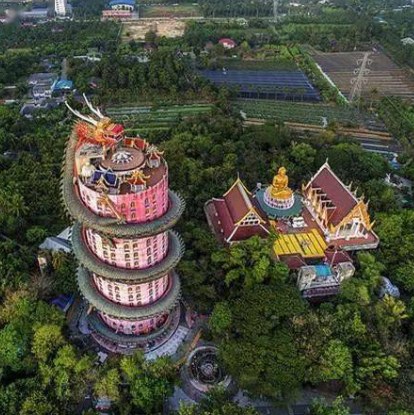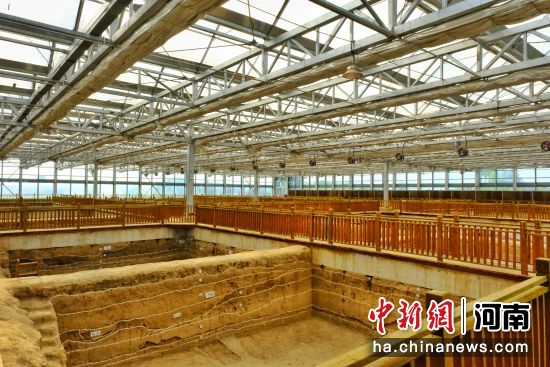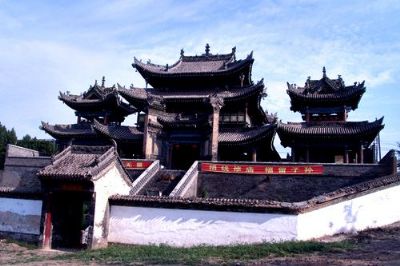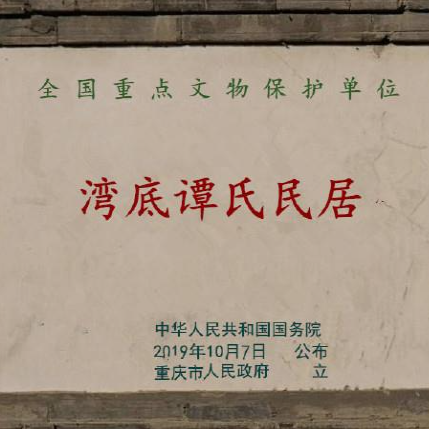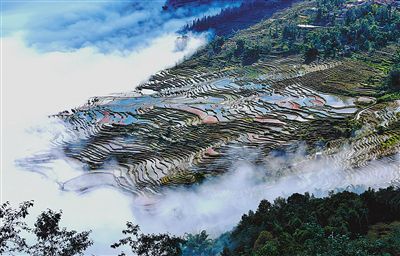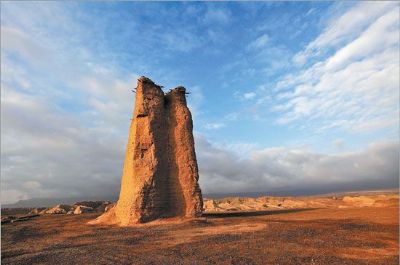Experience the Rich History of Zigong Jichengjing Yanzuofang Yizhi: A Must-Visit Destination in Sichuan
An Essential Guide to Visiting Zigong Jichengjing Yanzuofang Yizhi
In This Guide
- An Essential Guide to Visiting Zigong Jichengjing Yanzuofang Yizhi
- The Rich History of Zigong Jichengjing Yanzuofang Yizhi
- Main Highlights: What to See at Zigong Jichengjing Yanzuofang Yizhi
- Planning Your Visit: A Practical Guide
- Tickets, Hours, and Booking
- How to Get There
- Local Cuisine and Accommodation
- Frequently Asked Questions
- Final Thoughts on Your Trip
Nestled in the heart of Zigong, Sichuan Province, the Jichengjing Yanzuofang Yizhi (吉成井盐作坊遗址) is a remarkable testament to China’s rich history of salt production, dating back nearly a millennium. This ancient salt workshop site not only showcases the sophisticated techniques employed in well-salt extraction but also offers a unique glimpse into the socio-economic development of the region during the Qing Dynasty.
Visitors to the site will be captivated by the well-preserved remnants of salt production tools, pottery, and exquisite porcelain artifacts, including rare Song Dynasty pieces that highlight the artistry of the era. The remnants of various structures, such as workshops, water pools, and wells, provide a tangible connection to the past, illustrating the ingenuity of the ancient salt workers and their methods.
Recognized as a key archaeological site, Jichengjing Yanzuofang Yizhi has been instrumental in understanding the evolution of salt production technologies in China and serves as a vital resource for historians and researchers alike. Beyond its historical significance, the site is a perfect destination for travelers seeking to explore the cultural heritage of Zigong, often referred to as the “Salt Capital” of China.
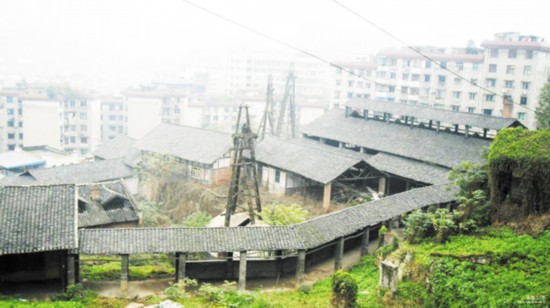
Zigong Jichengjing Yanzuofang Yizhi.
As you wander through the remnants of this once-thriving industry, immerse yourself in the stories of the artisans who toiled here and discover the profound impact of salt on the development of local culture and cuisine. This guide will navigate you through the fascinating history, cultural insights, and practical tips for exploring the Jichengjing Yanzuofang Yizhi, ensuring a memorable journey into the depths of China’s salt heritage.
The Rich History of Zigong Jichengjing Yanzuofang Yizhi
The Zigong Jichengjing Yanzuofang Yizhi, located in the Daan District of Zigong City, Sichuan Province, is a remarkable archaeological site that underscores the historical significance of salt production in ancient China. Dating back nearly a millennium, this site is a treasure trove for historians and archaeologists, providing invaluable insights into the technological advancements and socio-economic developments of the region.
The site encompasses approximately 25 acres and includes four primary salt wells: Jicheng Well, Yucheng Well, Yisheng Well, and Tiancheng Well. These wells, along with the associated infrastructure such as salt workshops, storage facilities, and the impressive wooden hoisting devices known as “tiancars,” highlight the sophisticated methods employed in traditional salt extraction. The Jicheng Well, originally named Yufeng Well, was established during the Qing Dynasty, with its depth reaching an impressive 1,108 meters.
Archaeological excavations have unearthed a wealth of artifacts, including tools used in salt production, pottery, porcelain, and metal items, with a notable collection of exquisite porcelain from the Song Dynasty. These artifacts not only reflect the craftsmanship of the era but also reveal the economic significance of salt in sustaining the local community and trade networks.
The site serves as a vital reference point for understanding the evolution of salt production techniques in China, particularly the deep well salt extraction methods that have been practiced for centuries. The preservation of the site is crucial, as it stands as a “living fossil” of the socio-economic history of the Zigong region, which was historically known as the “Salt Capital” of China.
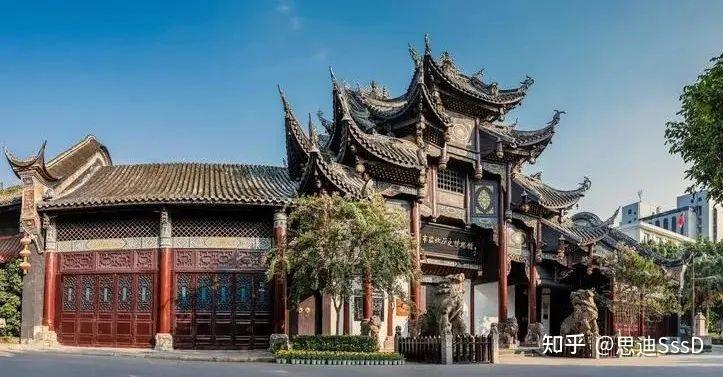
Zigong Jichengjing Yanzuofang Yizhi.
Recognized as a national key cultural relic protection unit in 2013, the Zigong Jichengjing Yanzuofang Yizhi continues to attract researchers and tourists alike, eager to explore the rich heritage of salt production and its impact on regional development. Visitors can engage with the historical narrative through guided tours, exhibitions, and interactive experiences that bring the ancient salt-making processes to life.
In essence, the Zigong Jichengjing Yanzuofang Yizhi is more than just a relic of the past; it is a testament to the ingenuity and resilience of the communities that thrived in this salt-rich landscape, making it an essential stop for those interested in China’s industrial history and cultural legacy.
Main Highlights: What to See at Zigong Jichengjing Yanzuofang Yizhi
Discover the rich cultural heritage of Zigong Jichengjing Yanzuofang Yizhi, a remarkable historical site that showcases the ancient salt production techniques of China. Nestled in the Daan District of Zigong City, this site spans approximately 25 acres and is home to several well-preserved salt wells, including the notable Jicheng and Yucheng wells, dating back nearly a thousand years.
Key Highlights:
-
Historical Significance: The site is an essential relic of the Qing Dynasty’s salt production era, providing critical insights into the technological advancements and socio-economic development of the Zigong region.
-
Archaeological Treasures: Visitors can explore a wealth of artifacts unearthed during excavations, including ancient tools used for salt extraction, ceramics, and precious Song Dynasty porcelain, which exemplifies the artistry and craftsmanship of the time.
-
Architectural Remnants: The remains of various structures, such as workshops, wells, and water pools, are visible, showcasing the sophisticated engineering methods employed by ancient salt workers. The stone tools and equipment found here highlight the advanced techniques utilized in salt production.
-
Interactive Exhibits: The site features a museum that offers engaging exhibitions, which include models, photographs, and authentic artifacts that narrate the history of salt production in Zigong. Audio guides are available for a deeper understanding of the site’s significance.
-
Culinary Delights: After exploring the historical wonders, visitors can indulge in “Yanbang” cuisine, a local culinary tradition that originated from the salt industry. Be sure to try dishes like “Spicy Rabbit” and “Salted Black Bean Tofu” for an authentic taste of Zigong.
-
Nearby Attractions: Zigong is also famous for its vibrant lantern festival, held annually, which is a must-see for tourists. The nearby Dinosaur Museum and other geological parks offer additional opportunities for exploration and enjoyment.
-
Preservation Efforts: The site has been designated a National Key Cultural Relic Protection Unit, underscoring its importance and the ongoing efforts to conserve this vital piece of history.
Visiting Zigong Jichengjing Yanzuofang Yizhi is not just an educational journey; it is an immersive experience into the heart of China’s salt production legacy, reflecting the ingenuity and resilience of its ancient society.
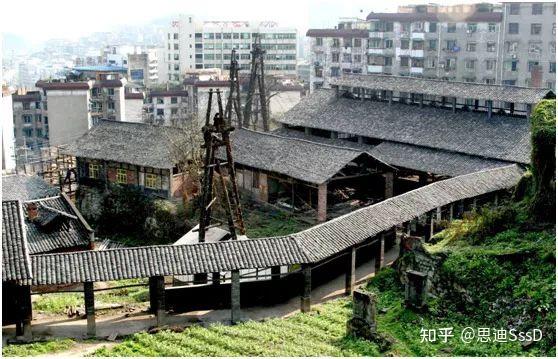
Zigong Jichengjing Yanzuofang Yizhi.
Planning Your Visit: A Practical Guide
Practical Guide to Visiting the Zigong Jichengjing Yanzuofang Yizhi
Visiting the Zigong Jichengjing Yanzuofang Yizhi, a historical salt workshop site located in Zigong City, Sichuan Province, offers a unique glimpse into China’s ancient salt production techniques and the socio-economic development of the region. Here’s a practical guide to help you make the most of your visit.
Getting There
Location:
The Zigong Jichengjing Yanzuofang Yizhi is situated in the Daan District of Zigong City, approximately 1.5 kilometers from the city center.
Transportation Options:
– By Car: If you’re driving, there are parking facilities available near the site. Look for the Ji Cheng Salt Workshop Parking Lot, which offers reasonable rates.
– Public Transport: Several bus routes pass by the site, making it accessible from various parts of Zigong. Check local schedules for the latest information.
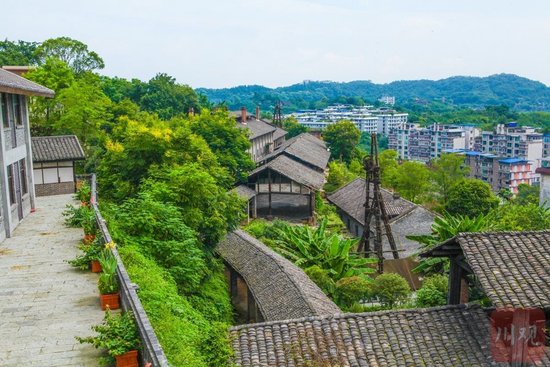
Zigong Jichengjing Yanzuofang Yizhi.
Opening Hours
To ensure a smooth visit, it’s wise to check the opening hours in advance. Typically, the site is open from 9:00 AM to 5:00 PM. However, these hours can vary, especially during public holidays or special events.
What to See
The site is rich in historical significance and features several key attractions:
-
Historical Exhibits: The workshop includes a museum with exhibitions showcasing the salt production process through photographs, models, and artifacts. Take your time to explore these displays for a deeper understanding of the ancient techniques used in salt production.
-
Preserved Structures: Visitors can observe well-preserved buildings, including workshop areas, water pools, and wells. These provide insight into the operational aspects of the salt industry during the Qing Dynasty.
-
Artifacts: The site houses numerous artifacts, including salt production tools, ceramics, and some exquisite Song Dynasty porcelain. Don’t miss the chance to appreciate these historical treasures.
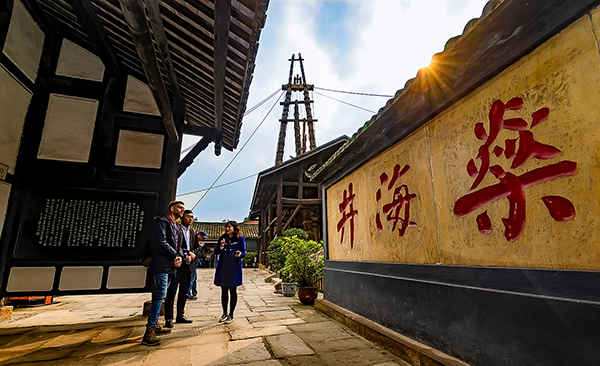
Zigong Jichengjing Yanzuofang Yizhi.
Audio Guide
To enhance your experience, consider renting an audio guide. This device provides detailed information about various sections of the site and its historical context, making your visit more informative and engaging.
Photography Opportunities
Don’t forget your camera! The Zigong Jichengjing Yanzuofang Yizhi is filled with picturesque scenes, especially around the ancient production areas and the artifacts on display. Just be mindful of any signage indicating restrictions on photography.
Local Cuisine
After exploring the site, treat yourself to the local delicacies known as “Yanjia” cuisine, which originated in Zigong. Notable dishes include:
– Spicy Rabbit Head: A local favorite, known for its unique flavor.
– Zigong Cold Eaten Rabbit: A refreshing dish, perfect for warmer days.
– Salt-Based Dishes: Sample traditional meals that utilize the unique salt produced in the region.
Nearby Attractions
If you have additional time, consider visiting nearby attractions:
– Zigong Dinosaur Museum: A fantastic destination for families and dinosaur enthusiasts.
– Chinese Lantern Garden: Famous for its beautiful lantern displays, especially during festivals.
– Geological Park: Explore the natural beauty and geological significance of the area.
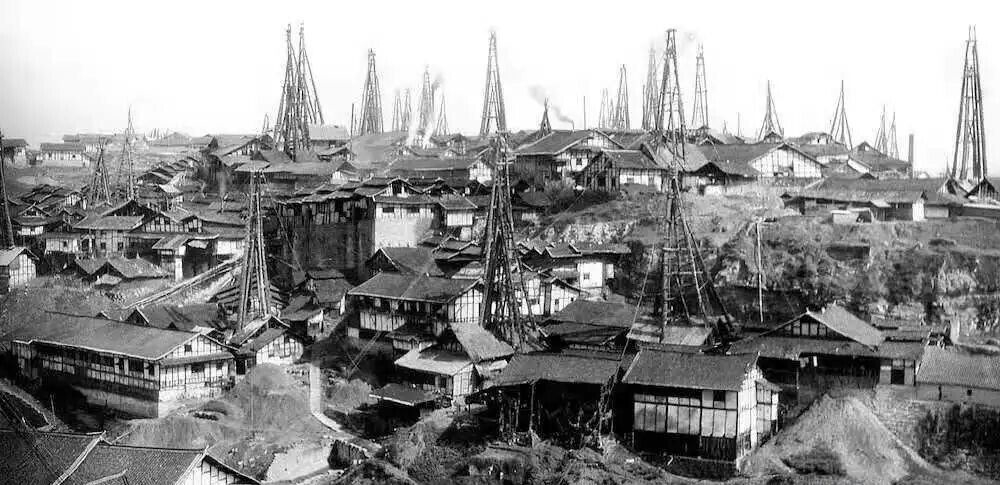
Zigong Jichengjing Yanzuofang Yizhi.
Tips for Visitors
- Respect Artifacts: Please refrain from touching or disturbing any artifacts. Follow the site’s guidelines to ensure preservation for future visitors.
- Plan Ahead: Check the local weather forecast and plan accordingly. Wear comfortable shoes, as some areas may require walking.
- Stay Hydrated: Bring water, especially during the warmer months, to keep yourself refreshed while exploring.
Conclusion
The Zigong Jichengjing Yanzuofang Yizhi is not just a site of historical value but also a cultural hub that showcases the rich heritage of salt production in China. With this practical guide, you’re well-prepared to delve into the fascinating history of this ancient industry while enjoying the local culture and cuisine. Happy travels!
Tickets, Hours, and Booking
When planning a visit to the Zigong Jichengjing Yanzuofang Yizhi, it’s essential to know the ticketing details to ensure a smooth experience.
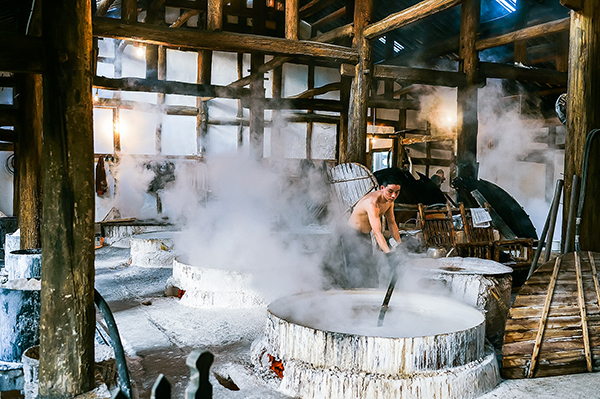
Zigong Jichengjing Yanzuofang Yizhi.
Ticket Information
-
Admission Fee: Entry to the Zigong Jichengjing Salt Workshop Ruins is typically free of charge, allowing visitors to explore this significant historical site without any financial barriers. However, special exhibitions or guided tours may incur a nominal fee, so it’s advisable to check in advance.
-
Opening Hours: The site is generally open to the public from 9:00 AM to 5:00 PM daily. It’s recommended to arrive early in the day to fully immerse yourself in the rich history and explore the well-preserved structures at your leisure.
-
Guided Tours: For those interested in a deeper understanding of the site’s historical context, audio guides are available for rent, or you may opt for a guided tour. These services often require a small fee, which varies based on the type of tour and duration.
-
Group Discounts: If you’re visiting with a group, inquire about potential discounts. Many cultural sites offer reduced rates for educational groups, seniors, or large parties.
-
Payment Methods: While entrance is free, if you decide to take a guided tour or rent an audio guide, ensure you have local currency (Chinese Yuan) for payment, as credit cards may not be accepted universally.
-
Special Events: Occasionally, the site hosts special events or exhibitions that may have separate ticketing. Keep an eye on announcements on the official site or local tourism boards for any upcoming events during your visit.
Visitor Tips
To make the most of your visit, consider planning your trip around local culinary experiences, such as tasting traditional Zigong salt dishes, and explore nearby attractions like the Zigong Dinosaur Museum or the renowned Lantern Festival if your timing coincides.
How to Get There
Visiting the Zigong Jichengjing Yanzuofang Yizhi (吉成井盐作坊遗址) offers a glimpse into China’s ancient salt production history, and getting there is convenient thanks to various transportation options available in Zigong City and its surroundings.
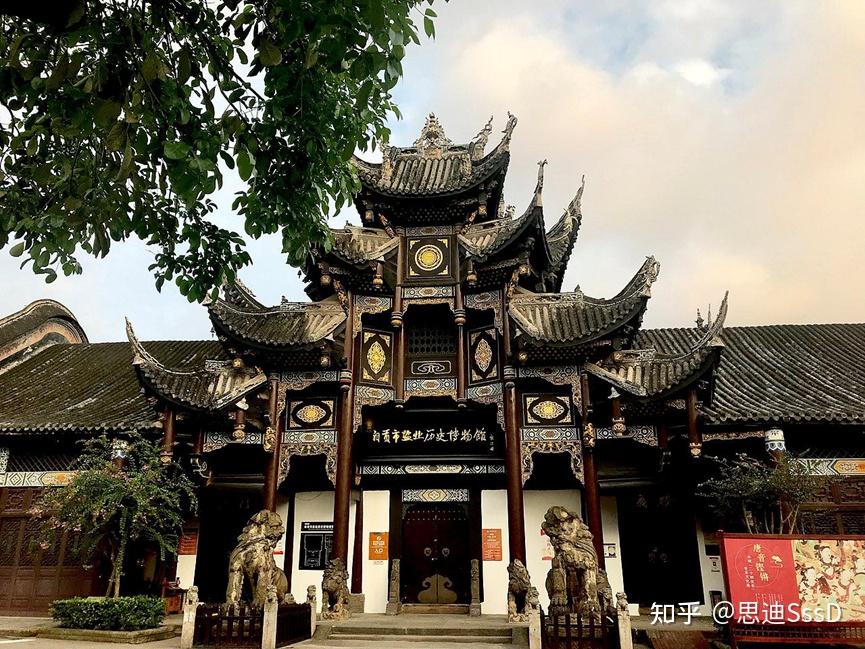
Zigong Jichengjing Yanzuofang Yizhi.
Getting There
By Air
The nearest major airport to Zigong is Chengdu Shuangliu International Airport (CTU), located approximately 150 kilometers away. From the airport, you can take a direct bus or hire a taxi to Zigong, which usually takes about 2-3 hours depending on traffic. Some visitors may choose to rent a car for more flexibility during their travels.
By Train
Zigong has a well-connected train station, making it accessible from many major cities in China. High-speed trains operate frequently to and from Chengdu, Chongqing, and Kunming. The journey from Chengdu to Zigong typically takes about 1.5 hours. Once you arrive at the Zigong Railway Station, you can take a local taxi or ride-sharing service to reach the site.
By Bus
Intercity buses are another viable option for traveling to Zigong. Buses depart regularly from major cities like Chengdu and Yibin. The Zigong Long-distance Bus Station is centrally located, and from there, you can easily find local transport to the salt workshop site. Expect the bus ride from Chengdu to take approximately 2-3 hours.
Local Transportation
Once in Zigong, getting around is quite straightforward:
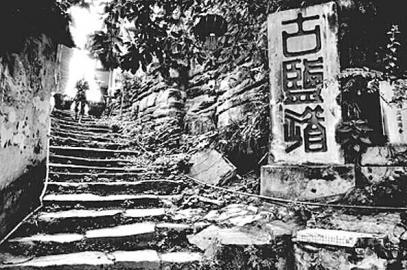
Zigong Jichengjing Yanzuofang Yizhi.
Taxis and Ride-Sharing
Taxis are readily available throughout Zigong, and they are an efficient way to navigate the city. Alternatively, ride-sharing apps like Didi Chuxing operate in the area, providing an easy and often cheaper option for transportation.
Public Transport
Zigong has a network of public buses that can take you to various attractions, including the Zigong Jichengjing Yanzuofang Yizhi. Be sure to check the bus routes and schedules, as English signage may not be prevalent.
Parking Information
If you are driving to the site, parking is available near the Jicheng Salt Workshop ruins. The parking lot is well-maintained and provides a convenient option for those exploring the area by car.
Travel Tips
- Plan Ahead: Check the opening hours of the site and arrange your transportation accordingly to avoid any last-minute hassles.
- Language: While some signage may be in English, it’s helpful to have basic Chinese phrases handy or use translation apps to assist with communication.
- Respect Local Customs: Always adhere to local regulations when using public transportation and be mindful of cultural practices during your visit.
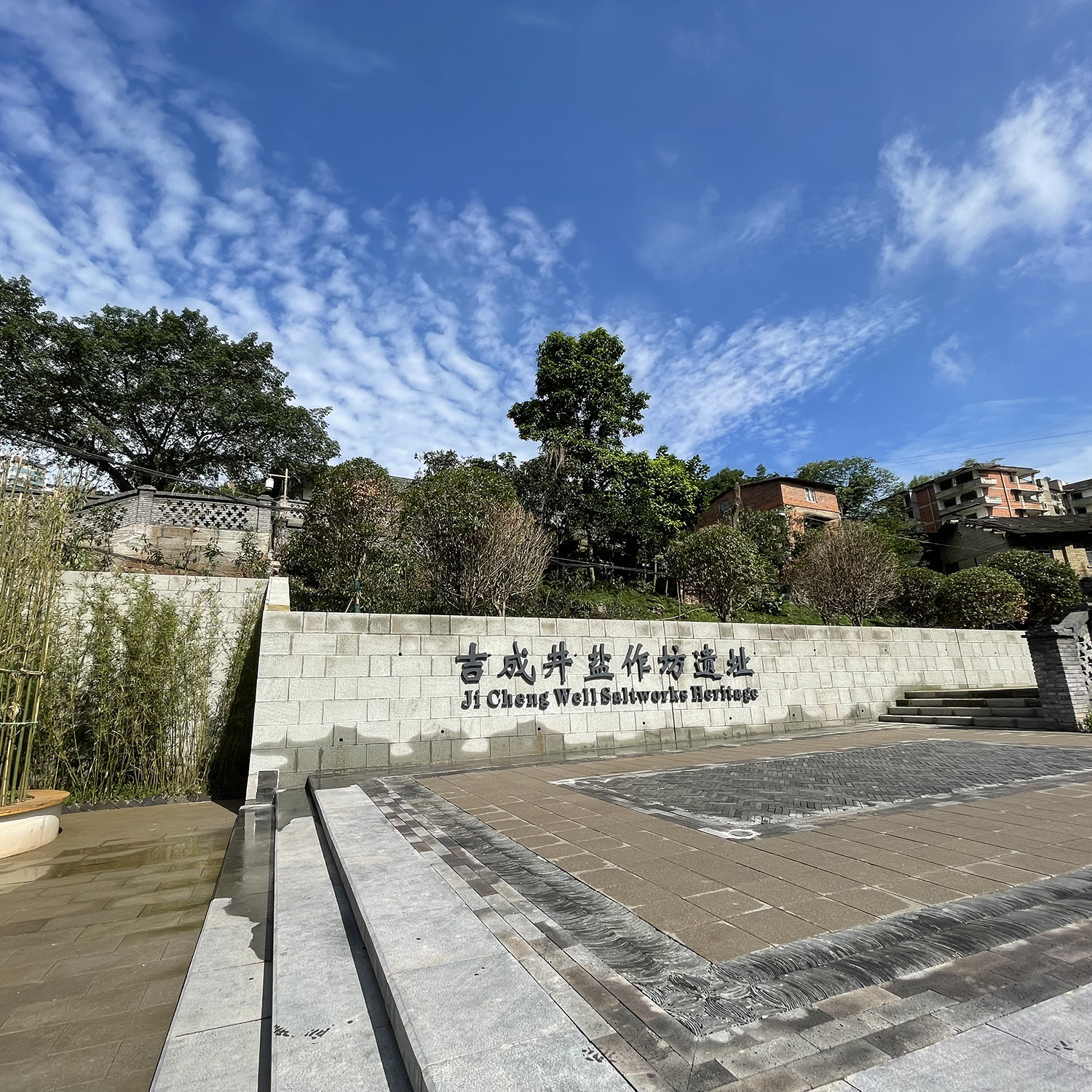
Zigong Jichengjing Yanzuofang Yizhi.
By utilizing these transportation options, you can easily access the historical and cultural treasures of Zigong, including the fascinating Jicheng Salt Workshop site.
Local Cuisine and Accommodation
When exploring the historical site of the Zigong Jichengjing Yanzuofang Yizhi, food and accommodation options abound, offering visitors a taste of local culture and comfort.
Dining Recommendations
Salt Cuisine Museum Restaurant
Just across from the Jicheng Salt Workshop Ruins, this unique establishment combines dining with education about the region’s salt culture. Here, you can savor authentic “Yanjia” cuisine, a culinary tradition rooted in the salt industry. Signature dishes include Spicy Ears of Catfish, Zigong Black Bean Curd, and the beloved Chilled Rabbit. The restaurant also offers cooking classes, allowing guests to delve deeper into the local culinary arts.
Street Barbecue Stalls
For a more casual dining experience, venture to the vibrant street stalls that line the area. Here, you can indulge in local favorites, such as skewered meats grilled to perfection, offering an explosion of flavors that reflect the region’s culinary heritage.
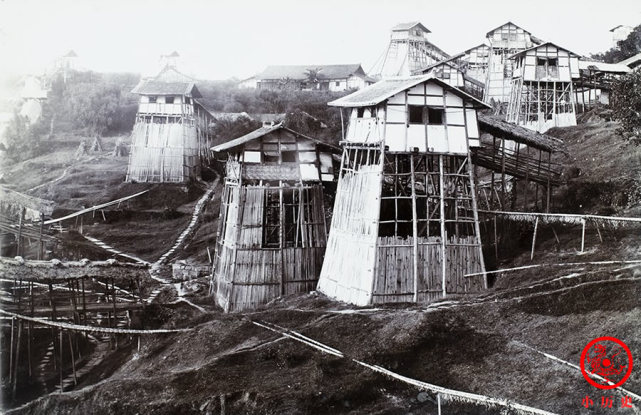
Zigong Jichengjing Yanzuofang Yizhi.
Spicy Hot Pot
Don’t miss the chance to try Zigong’s renowned Spicy Hot Pot, widely available at restaurants throughout the city. Look for popular spots filled with locals, as these are often the best indicators of deliciousness.
Private Dining Houses
For a homely meal, visit Jiachang Wei Dao, a private dining establishment frequented by locals. The menu is filled with comfort food that embodies the flavors of Zigong. The cozy atmosphere and authentic dishes provide a unique dining experience.
Accommodation Options
Ancient Town Guesthouse
Located approximately 1.5 kilometers from the Jicheng site, this guesthouse in the historic Zijiang Ancient Town offers a charming setting with traditional decor. Guests can enjoy a peaceful environment while being close to the salt workshop ruins, allowing for easy exploration.
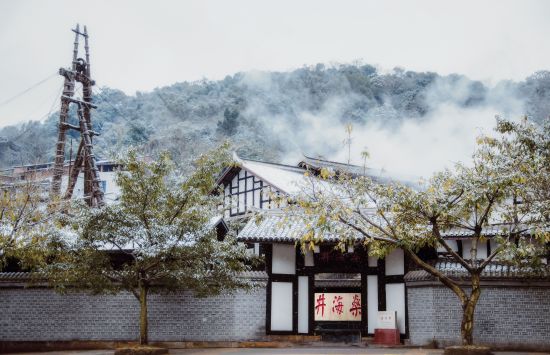
Zigong Jichengjing Yanzuofang Yizhi.
Home Inn (Zigong Da’an Railway Station)
This budget-friendly hotel is conveniently situated near the railway station, making it an excellent choice for travelers arriving by train. The rooms are clean and comfortable, offering all the necessary amenities at an affordable price.
Jinjiang Inn (Da’an Railway Station)
Another reliable option is the Jinjiang Inn, known for its consistent quality and service. Located near the railway station, it provides easy access to local attractions, including the Zigong Jichengjing Yanzuofang Yizhi.
Parking and Transportation
For those driving, the Jicheng Salt Workshop Parking Lot is conveniently located about 150 meters from the entrance. Additionally, public transportation is readily available, with several bus routes servicing the area.
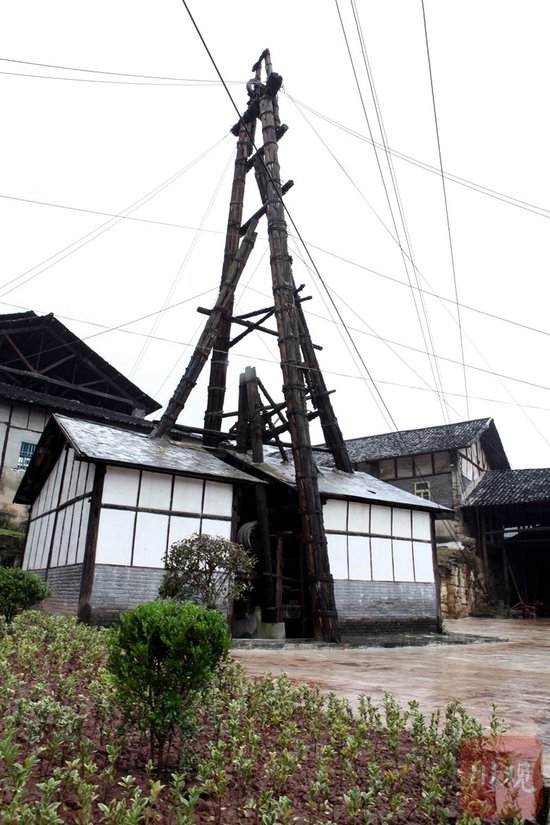
Zigong Jichengjing Yanzuofang Yizhi.
Whether you’re indulging in the local salt-inspired cuisine or enjoying a comfortable stay in one of the nearby accommodations, your visit to Zigong promises to be both enriching and enjoyable.
Frequently Asked Questions
Frequently Asked Questions
1. What is the Zigong Jichengjing Yanzuofang Yizhi?
The Zigong Jichengjing Yanzuofang Yizhi, or the Jicheng Well Salt Workshop Site, is a significant ancient salt production site located in Zigong, Sichuan Province, China. It dates back nearly a thousand years and provides valuable insights into the historical production of salt in the region and the technological advancements of ancient China.
2. How can I get to the Jicheng Well Salt Workshop Site?
The site is situated in the Daan District of Zigong City. Visitors can access it by car or public transport. Local buses frequently service the area, and parking is available nearby. It is recommended to plan your route in advance.
3. What can I see at the site?
Visitors can explore well-preserved remnants of ancient salt production facilities, including workshops, water wells, and tools used for salt extraction. The site also displays a range of artifacts, such as ceramics from the Song Dynasty, which highlight the craftsmanship of the period.
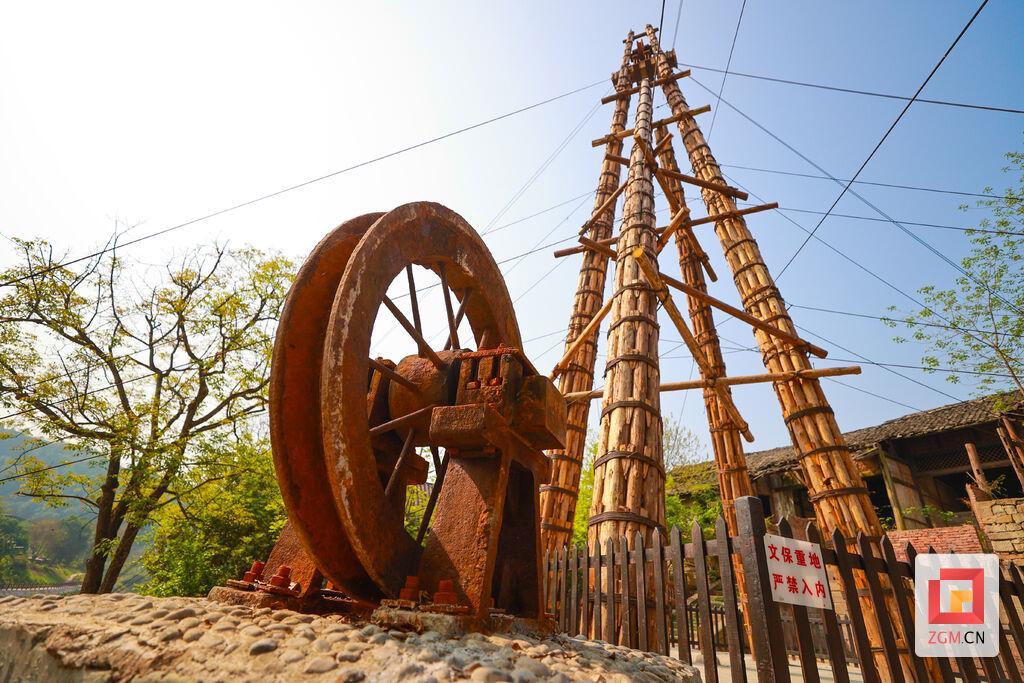
Zigong Jichengjing Yanzuofang Yizhi.
4. Is there an entrance fee to visit the site?
Yes, there is typically a small entrance fee to access the Jicheng Well Salt Workshop Site. It is advisable to check official sources for the most current pricing and any potential discounts for students or seniors.
5. Are guided tours available?
Guided tours are available at the site, often through audio guides or group tours led by knowledgeable staff. These tours provide in-depth information about the history and significance of the salt production techniques and tools used in ancient times.
6. What are some activities to do nearby?
After visiting the Jicheng Well Salt Workshop Site, you can explore nearby attractions such as the Zigong Dinosaur Museum, the Lantern Festival exhibits, and local parks. Additionally, trying local cuisine, particularly “Salt Gang” dishes, is a must.
7. What are the opening hours of the site?
The opening hours may vary by season, but generally, the site is open from 9 AM to 5 PM. It is recommended to check in advance for any changes in schedule, especially on holidays.
8. What should I keep in mind while visiting?
When visiting the site, please respect the artifacts and follow any guidelines provided by the staff. Avoid touching the exhibits unless permitted, and refrain from taking photographs in restricted areas. Additionally, it’s good practice to wear comfortable shoes, as there may be uneven ground.
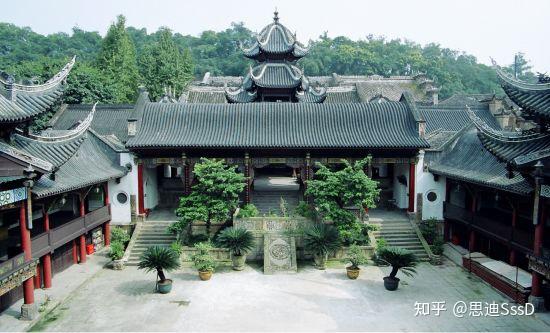
Zigong Jichengjing Yanzuofang Yizhi.
Final Thoughts on Your Trip
Visiting the Zigong Jichengjing Yanzuofang Yizhi is not merely a journey through history; it is an exploration of the roots of salt production in China, a process that has shaped the region’s culture and economy for centuries. As you walk among the remnants of ancient workshops, you are transported back to a time when salt was not just a commodity but a foundation of wealth and social structure. The exquisite artifacts, from beautifully crafted ceramics to intricate tools, tell tales of ingenuity and craftsmanship that echo through the ages.
While you immerse yourself in the rich heritage of Zigong, take the opportunity to savor the local flavors of “salt cuisine,” a culinary tradition born from the region’s salt industry. Each bite is a reminder of the deep connection between the land, its people, and the age-old craft of salt production.
As you conclude your visit, carry with you the stories of the past and the knowledge of how these ancient practices continue to influence modern life. The Zigong Jichengjing Yanzuofang Yizhi is not just a site to observe; it is a vibrant testament to the resilience and creativity of those who came before us. Let this experience inspire you to appreciate the historical narratives that shape our present and future.
